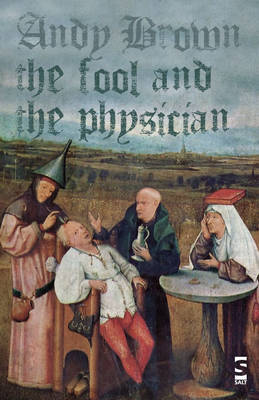Salt Modern Poets
3 total works
Fall of the Rebel Angels: Poems 1996-2006 brings together the best of Andy Brown's poems from the first ten years of his publications. Through his light-touch exploration of our sense of selves, public and private, Brown's work explores ideas of `relationship' in its widest senses -
the ecology of the natural world and our relationship to it
the intimacy and intricacies of personal relationships
the relationships between language and experience, memory, imagination and reality
Informed by philosophies of Critical Realism, Brown's poetry explores pertinent environmental and philosophic ideas, combining ontological inquiry with accessible lyric language and form, subtle humour, and a direct engagement with the `thing-ness' of the world.
Goose Music is a collection of new poems co-authored by Andy Brown and John Burnside, two writers with backgrounds in ecology and notable for their lyric poetry. John Burnside won the Whitbread Prize for poetry in 2000. Characterised by their formal variety, lyric intensity and their attention to natural detail, the poems in Goose Music are Ecopoetic, asking questions of how we might dwell on the earth in these times of great environmental change, exploring lyric ideas of identity, self, myth, landscape and place.
Exploding with Carnivalesque and antic energy, The Fool and the Physician shows the formal range and wit of Andy Brown’s poetry, from traditional lyric forms such as pantoums, sonnets and ballads, to paradelles, prayers, prose poems, and many playful devices inspired by the authors of the OuLiPo.
The poems center on the figure of the Clown and the Fool, exploring the meanings and associations attached to these characters. In part one, clowns career into space, up to heaven, knock at our front doors and expound upon the end of the world. The second half of the book is based on some of the remarkable paintings of Hieronymus Bosch – from direct responses to his works, to personal poems, or the more tangential approaches such as the densely erotic Garden of Earthly Delights – playing off Bosch’s extraordinary representations of fools and visions of human folly.

